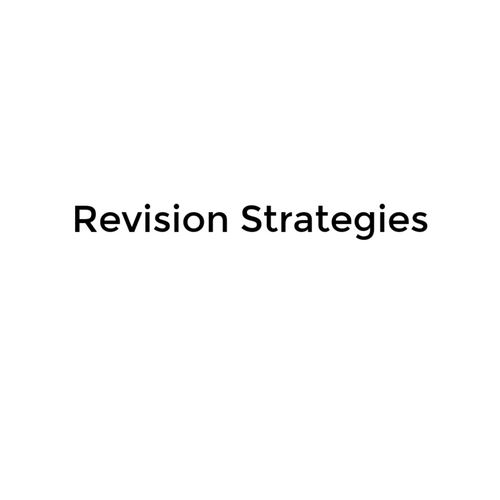"This Isn't Exile:" An Ecocritical Reading of Traci Brimhall's "To My Unborn Daughter"
Introduction
- Making climate change and ecology personal
- Redwoods and carbon absorption
- History of ecocriticism
- 1970s, expansion in 1990s
- literary and philosophy, science, economics, etc.
- Brimhall and a move to authentic ecology
Thesis
Lorem ipsum dolor sit amet, consectetur adipiscing elit. Morbi nec metus justo. Aliquam erat volutpat.
Context of Our Lady of the Ruins
- Movement of text—loss of and search for faith or spirituality
- Spirituality in nature, and in feminist creation
- Prevalence of utterance, prayer, prophecy
- Religion and creation
- Shift in faith as both search for faith and search for renewal
Emphasis on Interconnection
In "To My Unborn Daughter," Brimhall signals, through language that emphasizes preeminence of nature, a spiritual deference to interconnection.
Emphasis on Interconnection, pt. 2
-
"We are banished, but this isn't exile" (4)
- For the women of the narrative, men have exiled them, but the return to nature (out of the "nation of titans" (5)) is a shift toward connectedness
- Language signals dominion of nature: "...but a battlefield must be wider than the bodies below it" (7).
- Brimhall echoes this in connecting men's demons to that violence (to women, to nature) (14, 15-18)
"They will try to make you read it, the book of plagues, written by the dangerous one behind the stars" (1-2, emphasis mine).
Emphasis on Interconnection, pt. 3
- Contrast to men: dominance and control of nature
- "...nor the sailor who believes dead whales / lashed to the ship speak to him as he sharpens harpoons" (15-16).
- belief in the dead and signal in line shift to that belief as centered in violence and domination
- Motif of control of women as objects of desire: "Or one who will use your flesh to quiet his burning cigarette?" (21).
- contrast to the plea for the daughter to avoid this interpretation of the world
Emphasis on Interconnection, pt. 4
- "Book of plagues" as the destructive force: human movement away from control, use, and servitude of nature
- the book, scripture, seeks obedience
- "Stranger" of the unborn daughter should not place belief in control: "How can I convince you that this is love?" (18-19).
Exile and Return
The marking of the daughter as a stranger presents her also as one who is visiting a place, and so is intertwined with that place, and the connotation of the strange visitor emphasizes nature as well.
Exile and Return, pt. 2
- Scripture paints women as blamed, as sinful, as corrupting
- "Do not / believe their dusty proverbs. I am a good woman" (2-3).
- dual readings between the lines
- If the stranger is born in the land of exile (nature), then they are not exiled so much as they are part of that land.
- The mother is exiled, by men, but to the stranger (the daughter), the position is of being-in-nature.
Exile and Return, pt. 3
- Nature as the corollary to the site of dominance
- Daughter is a stranger, also, because she cannot know the site of dominance and, perhaps, will not know it.
- Exile, then, is the path away from dissociation and alienation caused in the "nation of titans."
Redemption as Anthropocentric
Brimhall's caution against a redeemer, who will kill for or die for "you," presents the reader with the notion that anthropocentric views on saving nature and, hence, ourselves, are problematic and doomed.
Redemption as Anthropocentric, pt. 2
- "Dangerous" (2), vocabulary of violence, and the connection of that violence to self-destruction
- lines 10-13: the man who empties his heart does so with the knowledge and teaching of the book
- violence, domination, control, desire
- lines 10-13: the man who empties his heart does so with the knowledge and teaching of the book
- "This is yours" (8, 9) as the received status as object, but also as determiner of fate ("this cup of rain we pass as we sing" (8)
- Again, she asks how she can convince her daughter that "this" is love
- "This" as the self-centering in the world
Redemption as Anthropocentric, pt. 3
- Brimhall, then, centers "love" in the move away from the anthropocentric
- The visitor/stranger as intertwined with place and environment
- dependence and interconnection with nature
- Command "to never read [a closed book given by the mother], never rest, never forgive a man who wants to save you" (23-24), placed in the emphasis on the preeminence of nature, marks shift toward the stranger (women) as rejecting the anthropocentric.
Conclusion
- Summary of points
- Return to the "making it personal" of the story of the redwoods
- Discussion of the personal as the destruction of boundaries and barriers between the human and nonhuman
- Call to action and activism
Research to Integrate
- Ethics of care
- Ecocritical theory
- Haraway, Lowenhaupt Tsing, McSweeney
deck
By Justin Daugherty
deck
- 580



